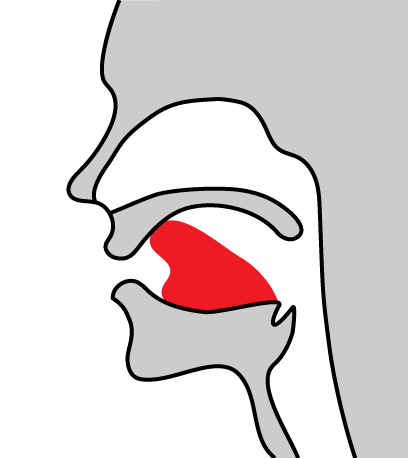
Description of the Japanese Pronunciation に

に consists of the Japanese consonant [ɲ] representing the sound of the roman letter /n/ with the Japanese vowel [i]. When you pronounce [ɲ], your tongue needs to touch the front part of the roof of your mouth a little farther back than な ぬ ね の, and make a sound by allowing air to pass out through the nose. [ɲ] is a voiced sound.
Does it make sense to you? Let's try to pronounce に after the tutor on the video!
Wasabi Japanese Pronunciation Lessons
Words Exercise with the Pronunciation [ɲ] に
Please repeat the following words after the tutor on the video.
| Words | Roman Letters | Meanings |
|---|---|---|
| 二 | ni | two |
| にわ | ni wa | yard, garden |
| にく | ni ku | meat |
| 煮る | ni ru | to boil |
| にっき | ni kki | diary |
| にぎやか | ni gi ya ka | crowded |
| にちようび | ni chi yo u bi | Sunday |
| ぶたにく | bu ta ni ku | pork |
| とりにく | to ri ni ku | chicken |
| ぎゅうにく | gyu u ni ku | beef |
Sentences Exercise with the Pronunciation [ɲ] に
Please repeat the following sentences after the tutor in the video.
| Japanese Sentences | English Translations |
|---|---|
| 豚肉を煮ました。 | I boiled pork. |
| にぎやかな日曜日です。 | It’s crowded Sunday. |
| 牛肉が二キロあります。 | There is 2 kilograms of beef. |
Tongue Twister Exercise with the Pronunciation [ɲ] に
Please repeat the following tongue twisters after the tutor on the video. Also, please focus on the pronunciation practice, not the meaning, because they were made only for the sake of practice.
| Japanese Tongue Twisters | Vocabulary |
|---|---|
|
肉々しい肉とにんにくを煮る、肉々しい肉とにんにくを煮る。 |
肉: meat, にんにく: garlic, 煮る: to boil, |
|
老若男女、老若男女、老若男女。 |
老若男女: men and women of all ages |
|
庭には二羽鶏がいる。 |
庭: yard, garden 二羽: 2 birds, 鶏: chicken, |
Conclusion
This is the how to pronounce [ɲ] に. We recommend that you practice the sentences above at least 5 times for each exercise, though we understand that pronunciation practice can be dull. Good pronunciation will give you listening and speaking ability, and thereby you will be confident enough to speak Japanese with native speakers. Thus, the ability you gain is well worth the time spent. We are looking forward to seeing you in the next lesson; [h] は へ ほ.
